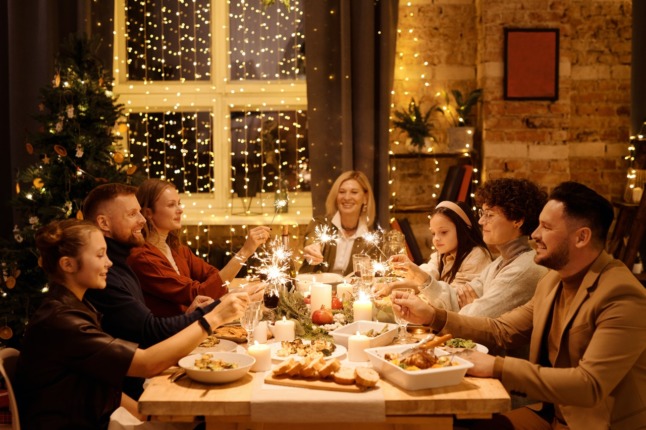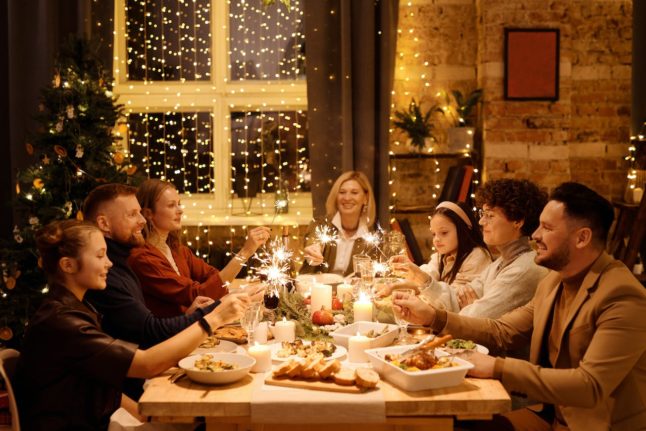Due to the still problematic epidemiological situation in Switzerland in terms of high infection and hospitalisation rates, and the Omicron variant spreading rapidly through the country, the Federal Council has tightened some measures from December 20th to January 24th, 2022 at the earliest.
One that will probably wreak havoc with many families’ Christmas and / or New Year plans is the rule for private indoor gatherings.
“Experience has shown that the risk of infection in private settings is considerable”, the Federal Council said when announcing the new measures on December 17th.
For this reason, authorities have decided to impose restrictions on people over the age of 16 at private indoor gatherings who have not been fully immunised against Covid or recovered from it within the past six months.
READ MORE: 2G: Switzerland targets unvaccinated with new Covid measures
In such cases, “no more than 10 people are allowed to meet, and children are included in that number. The upper limit for indoor gatherings is 30 if everyone from the age of 16 is vaccinated or has recovered from Covid-19. The limit for outdoor gatherings is still 50”, the Federal Council said.
This means that if you want to celebrate Christmas outdoors in the mountains or in the forest, you are basically unencumbered by any rules. But if prefer the more traditional, and warmer, way, seated around the table with family and friends, then the new measures apply.
It is true that enforcing these rules in a private sphere is difficult if not impossible, unless a neighbour reports you, but authorities are relying — as they have throughout the pandemic — on the civic conscience and personal responsibility of each person.
What are the ruled outside of homes?
In any public indoor sphere, the new 2G or 2G-Plus rules apply.
This means you have to show your Covid certificate for enter restaurants and other indoor venues. You will be allowed to come in only if you are vaccinated or recovered from Covid within the last six months, not if you are merely tested.
If, however, you are going to celebrate in venues that don’t provide seats while customers are eating or drinking, and masks can’t be worn, then the 2G-Plus measures will kick in: if you have not been inoculated against Covid or recovered from it within the last four months, you need a PCR or antigen test to enter.
The same applies if you have been fully vaccinated or recovered more than four months ago and have not had a booster shot since then.
Here is more information about the 2G-Plus rule:
EXPLAINED: What is Switzerland’s 2G-Plus rule?
If you are discouraged by these measures as they will dampen your celebrations, don’t be. They are much laxer than last year’s rules. Here’s a reminder, in case you forgot:
- Up to five people from two households could gather for private events, with exceptions for celebrations for up to 10 people from December 24th to 26th, and on December 31st for Christmas and New Year festivities.
- Sports and cultural activities were limited to five people
- Public demonstrations were banned, except for religious celebrations.
- Restaurants and bars had had to close at 7 pm, except for December 24th and 31st, when they remained open until 1 am.
With that, here’s hoping that this year’s Christmas will bring you comfort and joy, despite the circumstances.



 Please whitelist us to continue reading.
Please whitelist us to continue reading.
Member comments